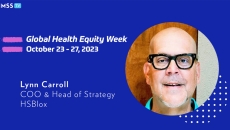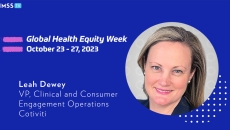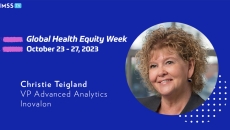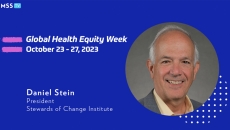Videos
Deliver what healthcare workers want and address the burden of disease, says Dr. Ricardo Leite, CEO of I-DAIR.
Alisa Chestler, chair of the data protection, privacy and cybersecurity team at Baker Donelson, questions whether $20 million in annual funding from a new Behavioral Health Information Technology Coordination bill is enough to move the needle.
Research on asthma shows African Americans are six times more likely to have an ER visit and three times more likely to die, says Marci Bennafield, clinical instructor in health informatics for Byrdine F. Lewis College of Nursing and Health Professions.
Health equity is being brought into the chapter's current events, says Elise Kohl-Grant, cochair of the programming committee at the chapter.
The National Institutes of Health estimates the cost of race and ethnicity disparities in the United States is upwards of $400 billion a year, says Dr. Michael Poku, chief clinical officer at Equality Health.
The health system has an integrated strategic plan to help clinicians and patients get the best care, says CIO Dr. Michael Pfeffer.
Data sets can be integrated into population health stratification to discover health equity issues that are preventing access to care, says Lynn Carroll, COO of HSBlox.
Payers have seen success in improving health outcomes by taking a holistic approach to member interventions, says Leah Dewey, vice president of Cotiviti.
Health equity index measures will be used in determining a plan's bonus payments, says Christie Teigland, vice president of Research Science and Advanced Analytics at Inovalon.
Having a central repository for consent would promote both interoperability and health equity, says Daniel Stein, president of Stewards of Change Institute.









